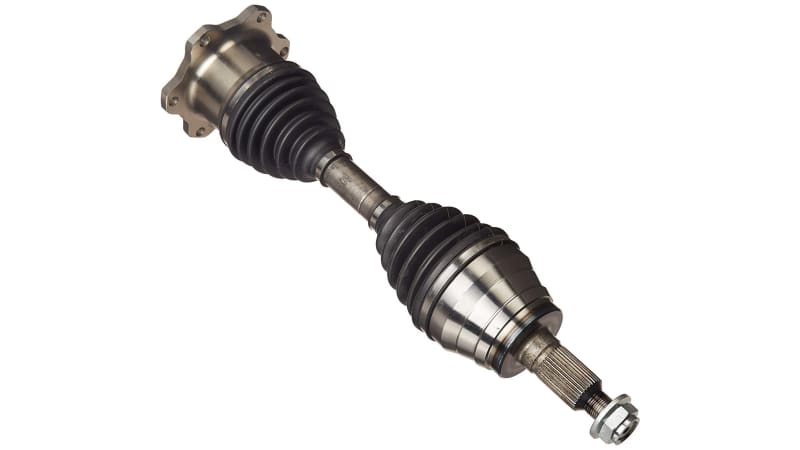Audi Repair Shop Doylestown
Call 267 279 9477 to schedule a appointment

Constant velocity (CV) axles are a drivetrain component commonly found on many modern road going vehicles. They serve the purpose of transferring power from the vehicle’s transmission and differential to the wheels to drive the vehicle forward. They have a greased flexible joint that allows the axle to flex according to road conditions, with minimal effect on power delivery.
The joint is lubricated with grease and covered by a rubber boot that protects it from dirt and debris. Because the CV axles are the direct link that transfers the power of the engine to the wheels, they are subject to high levels of stress over time and will eventually wear out and require replacement for proper functionality to return. When they do wear out, the CV axles usually will produce a few symptoms that can alert the driver that they require attention.
1. Loud clicking noises when turning
One of the most common and most noticeable symptoms of a bad or failing CV axle shaft assembly is an audible clicking noise when turning. When CV axles become excessively worn, the joints will become loose and click when turning. The clicks may become louder or more pronounced during sharper and faster turns, and will be heard on the side with the faulty CV shaft.
2. Grease on edge of tire
Another symptom of a problem with the CV axle shafts is grease on the inside edge of the tire or along the underside of the vehicle. This is usually caused by a torn boot leaking grease, which is tossed around while the axle turns. A leaky boot will eventually lead to CV joint failure, as dirt and debris will get into the boot and damage the joint.
3. Excessive vibration while driving
Another symptom of a bad CV axle is excessive vibrations from the axle while driving. If a CV joint or axle shaft is damaged in any way that affects its balance while rotating, it will cause the shaft to vibrate excessively while operating the vehicle. The vibrations may oscillate, or become more pronounced as vehicle speed increases. Excessive vibration from failing CV shafts can interfere with handling and ride characteristics, and the overall safety and comfort of the vehicle. Usually the CV axle will need to be replaced if it is damaged enough to cause vibrations.
CV axles serve as the final link between the engine and the wheels. They serve the important function of transferring the torque from the drivetrain to the vehicle’s wheels in order to move the vehicle. For this reason, if you suspect that one or more of your CV axle shafts may be having a problem, you’ll want to take a closer look at it.
from Autoblog http://bit.ly/2XPw78b
